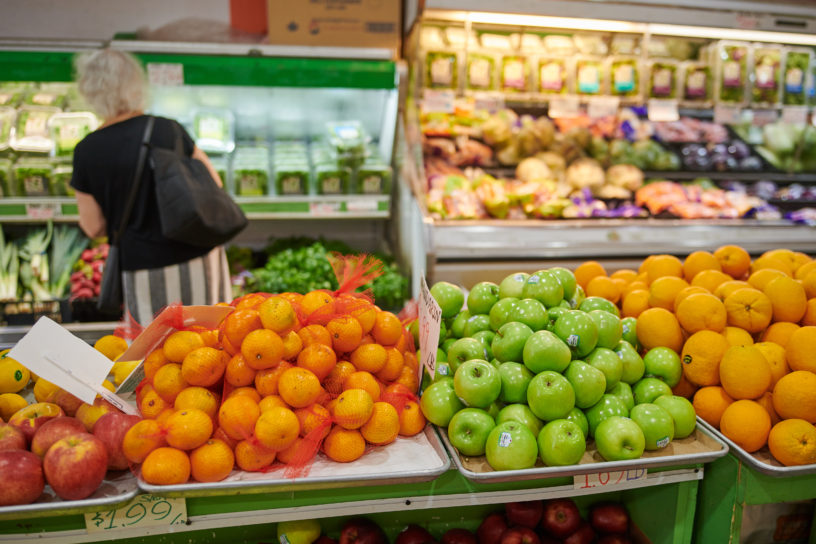By Jasmine Makar
With the significant jump in food insecurity and costs in Toronto, students at Toronto Metropolitan University (TMU) are among those affected by this growing issue.
Food banks are experiencing nearly one million more visits in Toronto from last year and a 273 per cent increase from before the COVID-19 pandemic, according to the 2024 annual Who’s Hungry report from The Daily Bread Food Bank and North York Harvest Food Bank.
The report also highlights that 31 percent of visitors identified as students, 56 percent identified as international students and 59 percent of visitors had a post-secondary degree or higher.
Afrah Khan, a third-year biomedical engineering student, spoke on the challenges she faces with rising costs limiting her access to affordable groceries.
“I can say that because [international students] have a lot of other spendings as well, just taking care of groceries every other week is actually a big financial burden…grocery shopping itself is a little hectic,” she said.
Khan, an international student from India, said she often gets her food delivered due to her hectic schedule. She also expressed the lack of support from family because of the distance, having to manage tasks independently, leading to costly delivery fees.
“There’s always an inflation in either the delivery prices or the food prices themselves in general,” she said.
With concerns for her grocery budget, Khan said with each passing shopping round she spends higher than what she sets up.
Yukari Seko, an associate professor of professional communication at TMU and the director at the Centre for Studies in Food Security, said food banks are not a long term solution to food insecurity.
“Food insecurity cannot be solved by charity [or] by the food bank model. It’s a political issue and systemic solutions are needed,” said Seko. She added that these solutions include policy change from within the government.
Seko emphasized the effects of food insecurity for students with the high cost of living in Toronto and high tuition rates as well as being able to afford other daily necessities. Many students do not have the access to the support they need.
“Unfortunately, food is not the priority for many students,” she said. Additionally, international students are disproportionately affected, due to limited support systems from friends and family, compared to domestic students. She said money isn’t not the only reason international students face food insecurity.
“If you have less [of a] support network, as international students coming in this country by yourself, of course you have less access or less security net compared to your domestic students,” said Seko.
The Good Food Centre (GFC), a campus food bank located in the Student Campus Centre (SCC), is in partnership with The Daily Bread Food Bank according to its website.
GFC is open to students from 2:30 p.m. to 5:30 p.m. on Tuesdays, 1 p.m. to 6:30 p.m. on Wednesdays and 2 p.m. to 5 p.m on Thursdays. Any student facing food insecurity can use this food bank after registering as a member, according to their website.
The Eyeopener reached out to The Good Food Centre for comment but did not receive a response in time for publication.
In an interview with The Eye, TMU President Mohamed Lachemi said the university has many supports and programs in place for students facing food insecurity besides GFC.
He shared that the office of the president subsidizes the five-dollar “Friendly Fiver” meals at the ServiceHub Café located in Jorgenson Hall for all students.
“My office works closely with the team at the Hub [Café] and also TMU Eats and we want to make sure the cost remains five dollars despite rising food costs,” he said. “There has been an increase in the number of ‘Friendly Fiver’ meals this year which indicates how valuable it is for students.”












Leave a Reply